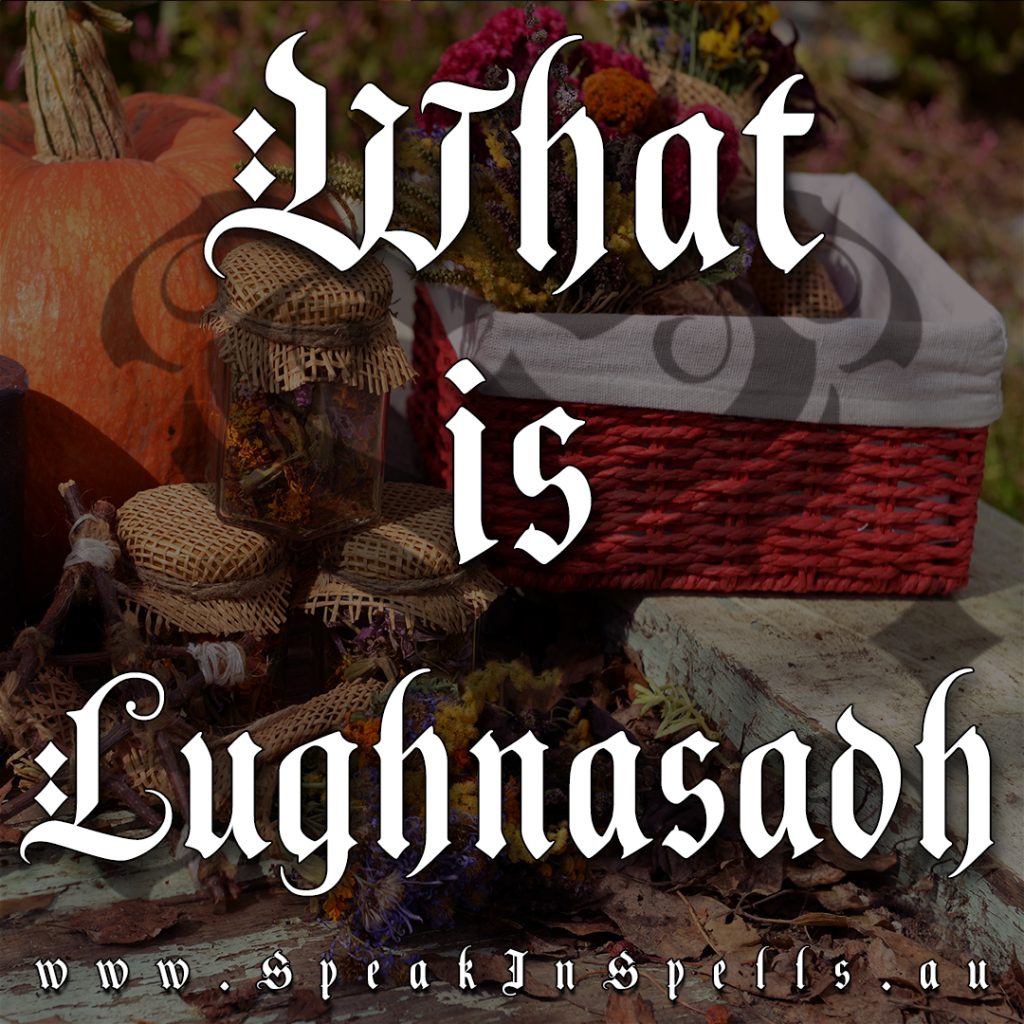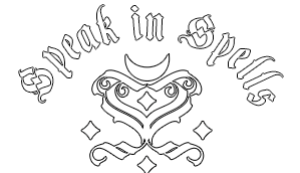Explaining what Lughnasadh is will be a little easier but there is a whole lot to take in. Seriously, this is probably the longest article out of them all as I am a little bias when it comes to seasonal timings.
This is a festival that is often confused with Lammas even though there is more than enough evidence to differentiate the two.
So in this post I’m going to try and get all the tiny bits of history loaded in and hopefully explain the differences with the names, activities and what you can do during this wonderful festive season!
But just before we begin, the way to pronounce Lughnasadh/Lughnasa/Lúnasa is LOO-nuss-uh.

First up, Lughnasadh, Lughnasa or Lúnasa?
In my opinion, any three of these words is fine but there are some differences, nothing that’s recorded in history. Only one thing is for certain, Lammas is NOT Lughnasadh. To use Lammas and any of the variations of Lughnasa as if they mean the same thing is kind of insulting and just plain ol culture appropriation, in my opinion. I won’t get into it here as I’ve written a post on what Lammas is already and it’s quiet lengthy. Like all of my posts are turning out to be, but I do think it’s important to know where things originated from and make your mind up from there. So, anyway, what is the difference between Lughnasa names?
What is Lughnasadh?
Lughnasadh marked the beginning of the harvest season, the ripening of first fruits. Traditionally it’s time of community gatherings, market festivals, sport activities, and reunions with distant family and friends. In Irish mythology, the Lughnasadh festival is said to have been begun by the god Lugh as a funeral feast and athletic competition in commemoration of his mother (or foster-mother) Tailtiu. She was said to have died of exhaustion after clearing the plains of Ireland for agriculture. The funeral games in her honour were called the Óenach Tailten or Áenach Tailten and were held at Tailtin (now County Meath).
Other recorded activities were trial marriages. There were conducted whereby young couples joined hands through a hole in a wooden door. The trial marriage lasted a year and a day, at which time the marriage could be made permanent or broken without consequences. I wish modern hand fasting’s were this easy!
There’s also the cutting for the first “corn”. Corn in this case means anything to do with grain harvests, not actual corn. The first cutting would be an offering made to the deity by taking it to a high place and burying it. A meal of the new food (breads, stews, meats) and bilberries (European Blueberries) would be eaten by everyone. A bull or some other animal was sacrificed too, with everyone feasting from it and the hide was kept. There was dancing, plays of the god Lugh and his triumphs all month long.
What is Lughnasa, then?
It’s the same thing just a more modern name , but not too modern as Lúnasa (1900s) is the modern, modern name for Lughnasa but I personally don’t use it. I like Lughnasa as even though it’s a later name than Lughnasadh, it feels a little less tainted to me. Neopagans, Wiccans and other groups tend not to use the spelling and it’s how my family spells it, so why not keep it? I know my cousins do use the more modern spelling, Lúnasa, but it doesn’t really work for me down here in the southern hemisphere, why? Well keep on reading, hopefully this isn’t too confusing.
and Lúnasa?
Again, it’s the same festival to the witchcraft community, in the northern hemisphere. While all 3 words are pronounced the same, this word has a different meaning, it means August in modern Irish. So while the northern witches are celebrating Lughnasa during the month of August, it makes sense for them to say Lúnasa. However, those of you that are celebrating Lughnasa during February due to the season, it doesn’t really make much sense as it’s not August.
I’m not very good at explaining this point, but bottom line is, Lúnasa means August in modern Irish. Use it, don’t use it, it’s up to you in the end.
What's Bilberry Sunday?
This one is kind of a modern variation of Lughnasa? Well, it’s associated with it, like Lammas and other festivals around this time. The name Bilberry Sunday comes from a tradition of gathering Bilberries at this time. If the bilberries were bountiful, the crops would be also. This is also the feast of the first grain harvest. Though the exact date of the festival varies, traditionally it was held anywhere from August 1 to August 14. Often, it began at sundown of the previous evening, or July 31, since the Celts measure their days from sundown to sundown and before the Georgian system (in 1700s) was introduced.
Why so Many Names?
It really comes down to the time period. Lughnasadh is the eldest, sort of. “Lug” is the old spelling for the gods name “Lugh”, with Lugh being the more modern version. Then there’s “-nasadh,” part which back in the day translated to “commemorative assembly” or “funeral feast” but that’s no longer in use, at all, and there’s new Irish words for both of those translations… So then everything was dropped over time and…
You can see where I’m going with this.
And due to the change of language over time, you won’t find Lughnasa in modern Irish dictionaries, it will only be Lughnasadh with the neopagan connotations attached to it and Lúnasa which will be a mash of all harvest festivals (this includes Lammas).
When is Lughnasa?
Traditionally, Lughnasa is around the 1st of August in the Northern Hemisphere and ending in the end of August. However, down here in the Southern Hemisphere, it’s around the 1st of February and lasts till the end of February.
This festival lasted longer than a day due to the endurance activates, feasting and various trade, merchant and wedding agreements made.
What to do on Lughnasa
Since I’m an Australian and most of the readers here are Australian too, some activities are going to be a bit of a hit and miss due to fire restrictions or it’s just too darn hot!
- Bake a berry pie
- Take a walk up a hill or mountain
- Make a wish in a well (if you find one/know of one)
- Giving thanks and showing gratitude
- Preserving foods from your harvest
- Baking everything
- Sports, endurance and hard work
There are of course many more ways to celebrate and honour Lughnasa, just do what works best for you!
Lughnasadh Associations
Herbs & Fruits
- All Berries
- Poppy
- Allspice
- Basil
- Rosemary
- Cornflower
- Garlic
- Bay
- Stone Fruits
- Sunflower
- Mints
- Salt
- Apples
- All Australian Wild Flowers
Magical Intentions
- Preserving
- Gratitude
- Release
- Accomplishment
- Endings
- Sharing
- Community
- Darkness
- Energy
- Endings
Harvest! Bake! Walk! Dance! Feast!
This is the busiest time of year for witches, pagans, farmers, animals and all walks of life. Your spirit knows that the warmer months are coming to an end and that the sun with it’s wonderful (sometimes) fiery energy is saying good-bye. Crops are being harvested, foods being preserved and the scent of delicious baked goods cannot be ignored! Around the 3 week mark of Lughnasa, I try to get the family to go on a picnic to the forest and eat all the foods we have gathered and preserved over the last few weeks. It’s always kind of a sad moment as we realise the cold months are ahead and there’s no more fruit to be had. For us, it’s almost a funeral for the sun and an acknowledgement that our hard work and perseverance has paid off over the year.
I hope you all have a wonderful Lughnasa!
Speak in Spells again soon!
By all means, this isn’t everything on Lughnasa/Lughnasadh/Lúnasa. I try to keep the information neutral and fun for everyone to make their own decisions. Please keep in mind that when you read information on the “Celts”, that it is not just one people. This Fire festival is still celebrated in many parts of Ireland, it just has it’s little sprinkle of Christianity in it and some just celebrate Lammas outright.

